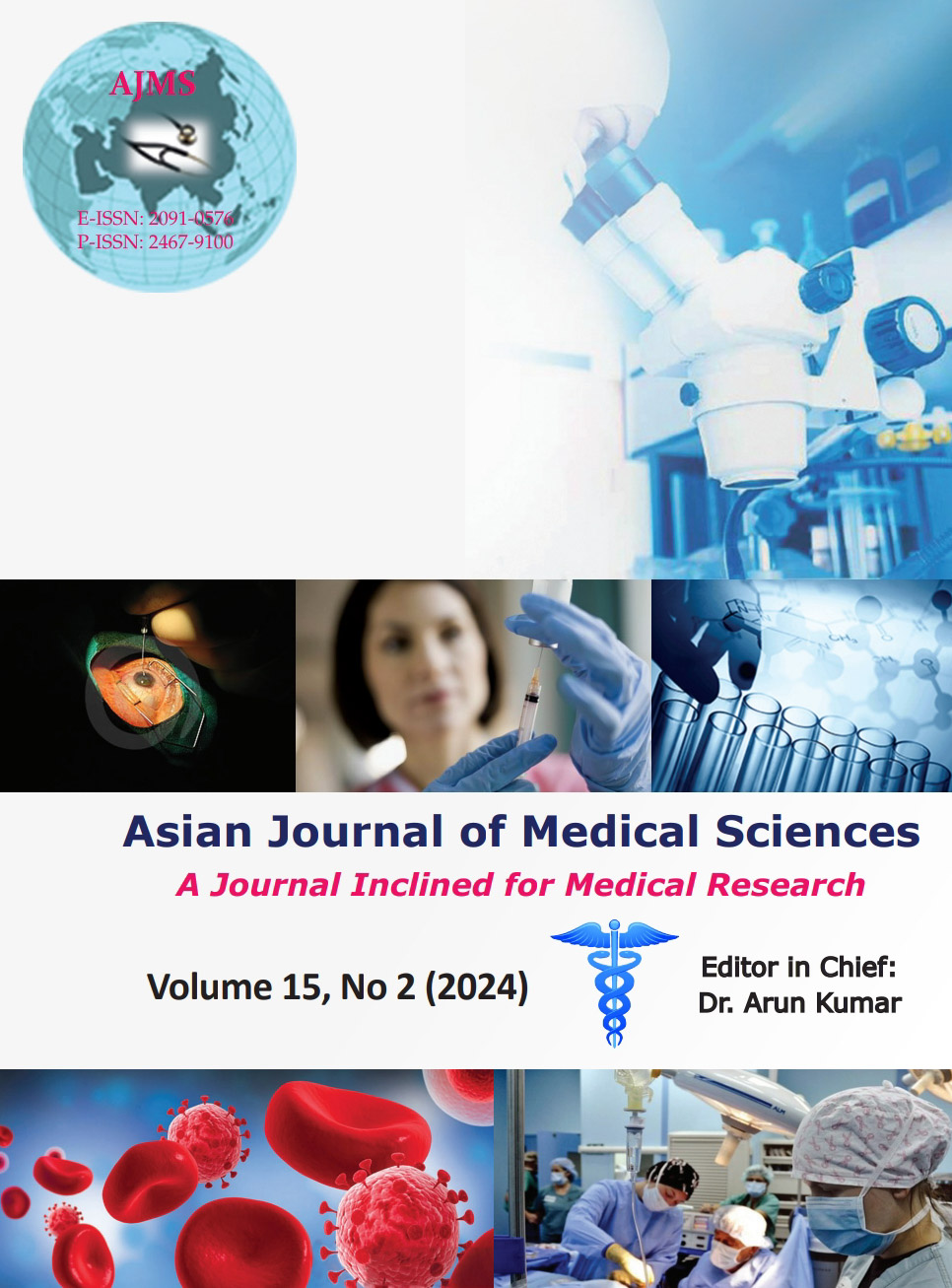A longitudinal study of the prevalence of post-surgical inguinodynia and the factors responsible for the development of chronic pain among the patients undergoing open hernioplasty at a tertiary care center
Keywords:
Inguinodynia inguinal hernia; Hernioplasty; Visual analog scaleAbstract
Background: Chronic groin pain (Inguinodynia) is a potential complication following inguinal hernia mesh repair and has a significant impact on the quality of life. The incidence varies among studies ranging between 0% and 62.9%.
Aims and Objectives: The present study was conducted with the objectives of estimating the prevalence of post-surgical inguinodynia among the patients undergoing open hernioplasty. The secondary objective was to assess the factors associated with the development of post-surgical inguinodynia.
Materials and Methods: A longitudinal study was carried out in a tertiary care center in Bangalore, Karnataka among the hernia patients attending the outpatient department of General Surgery department. A pro forma prepared with expert validation was used to collect details regarding pre-operative characteristics, type of anesthesia, intraoperative findings, and post-operative complications. The pain was assessed by the visual analog scale. Descriptive statistics and Chi-square test were used to identify the risk factors.
Results: A total of 112 patients underwent hernioplasty. Out of this, 108 were males and 4 were females. The mean age of the patients was 48±10.8 years. Majority of them (84, 77.7%) presented with indirect inguinal hernia. The prevalence of inguinodynia at 3-month post-hernia surgery was 21.4% (n=24). Patients with significant pre-operative pain had higher chances of developing chronic pain (P=0.000). It was found that post-operative surgical site infection was associated with increased chances of development of chronic pain (P=0.000).
Conclusion: Our study found that around one-fifth of the hernia patients had developed chronic post-surgical inguinal pain following open hernioplasty. There was no significant relationship between patients’ characteristics and development of chronic post-operative pain. The presence of pre-operative pain and post-operative infection in the patients was significantly associated with the development of chronic pain. Intraoperative nerve identification and chronic post-operative pain did not have a significant relationship in our study. Most of the patients who developed chronic pain had experienced only mild pain and none of them had severe inguinal pain. From the findings of our study, we would like to recommend that all measures must be taken to prevent and treat post-operative surgical site infection which leads to the development of chronic pain in patients.
Downloads
Downloads
Published
How to Cite
Issue
Section
License
Copyright (c) 2023 Asian Journal of Medical Sciences

This work is licensed under a Creative Commons Attribution-NonCommercial 4.0 International License.
Authors who publish with this journal agree to the following terms:
- The journal holds copyright and publishes the work under a Creative Commons CC-BY-NC license that permits use, distribution and reprduction in any medium, provided the original work is properly cited and is not used for commercial purposes. The journal should be recognised as the original publisher of this work.
- Authors are able to enter into separate, additional contractual arrangements for the non-exclusive distribution of the journal's published version of the work (e.g., post it to an institutional repository or publish it in a book), with an acknowledgement of its initial publication in this journal.
- Authors are permitted and encouraged to post their work online (e.g., in institutional repositories or on their website) prior to and during the submission process, as it can lead to productive exchanges, as well as earlier and greater citation of published work (See The Effect of Open Access).




